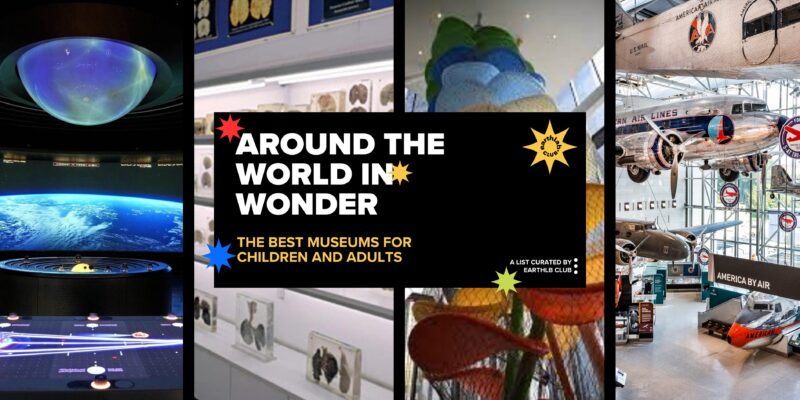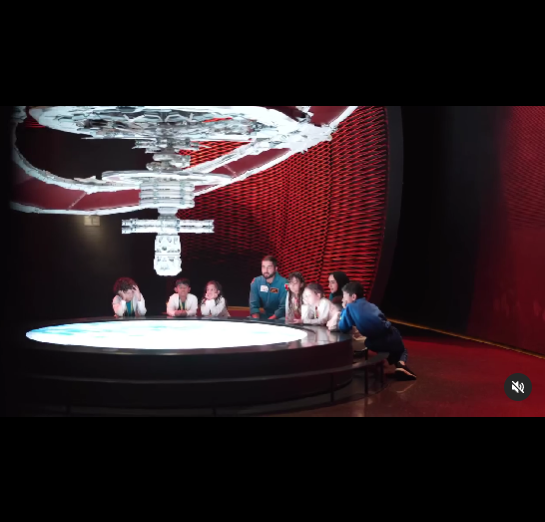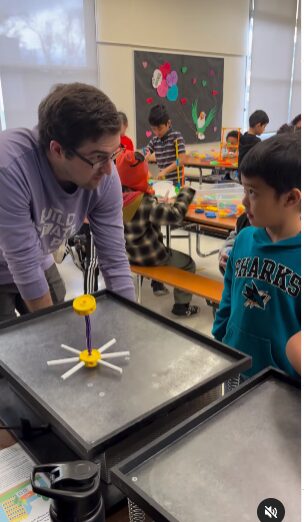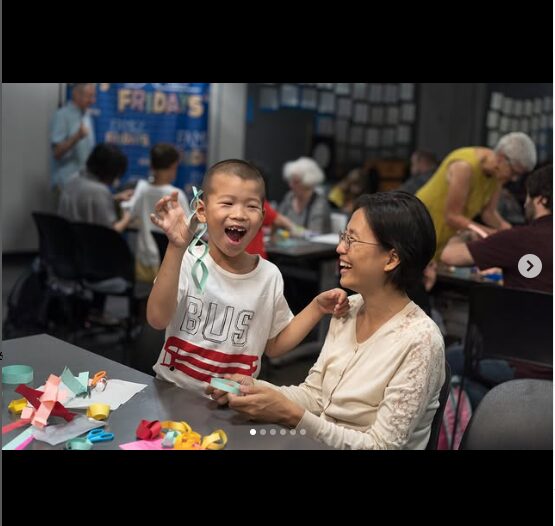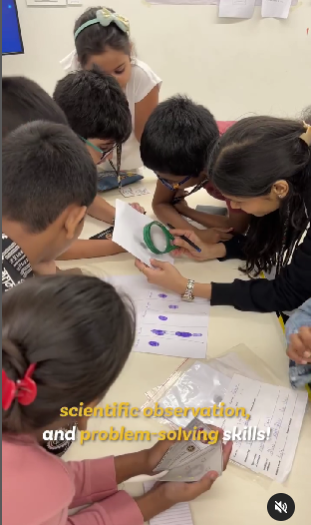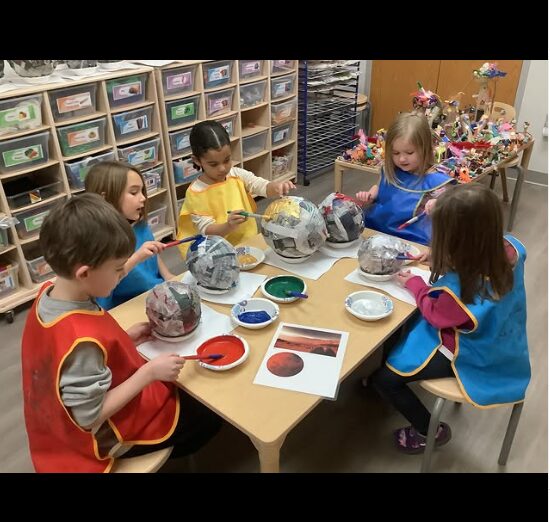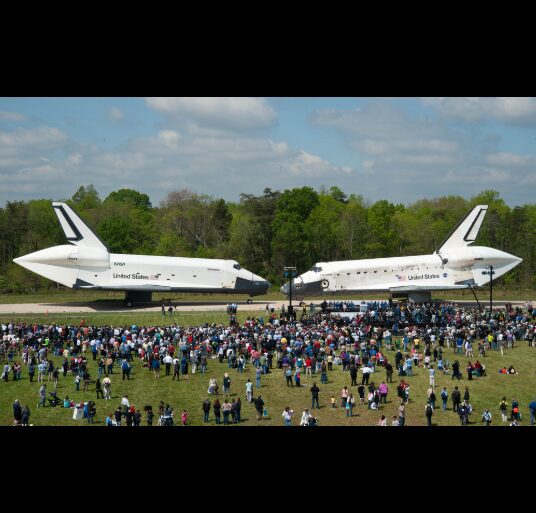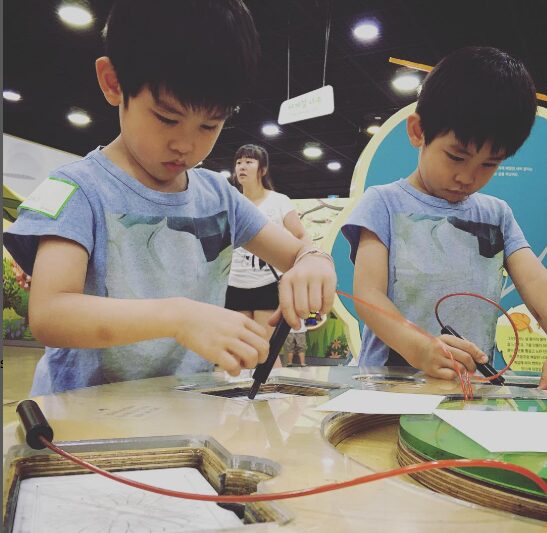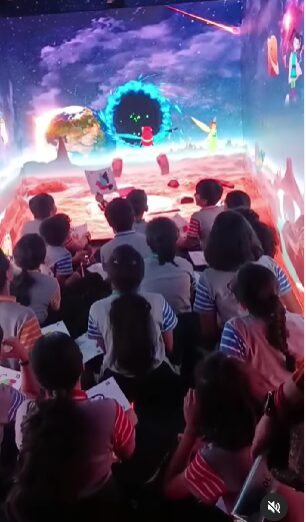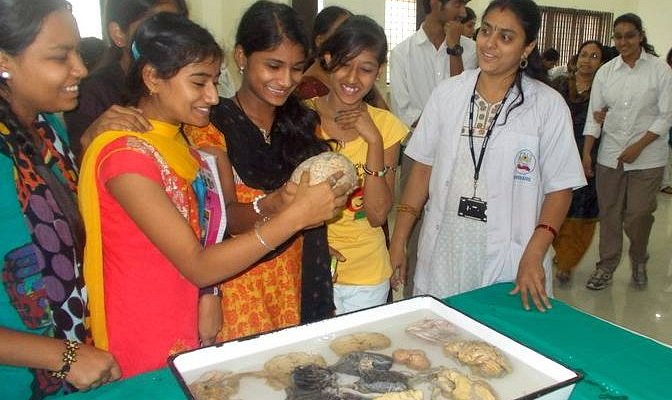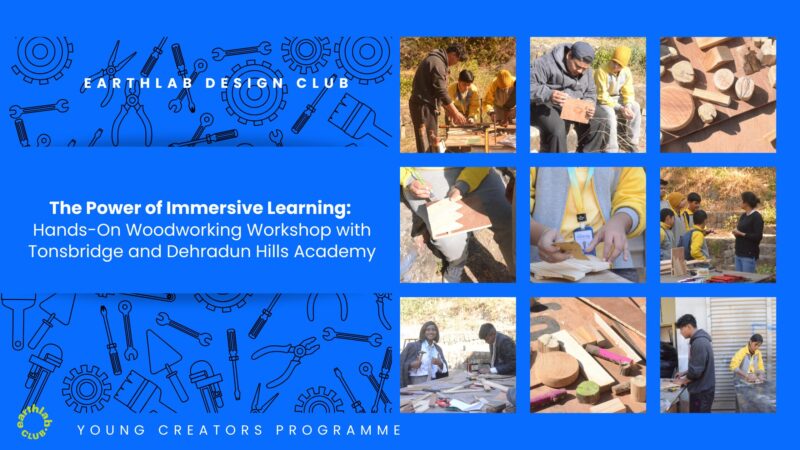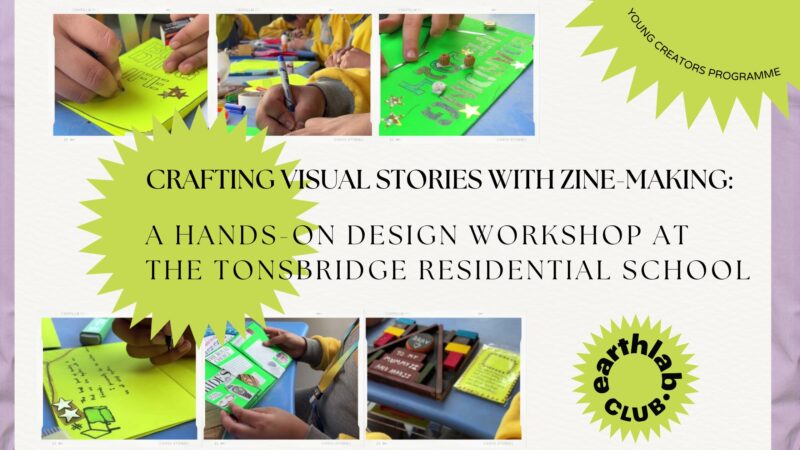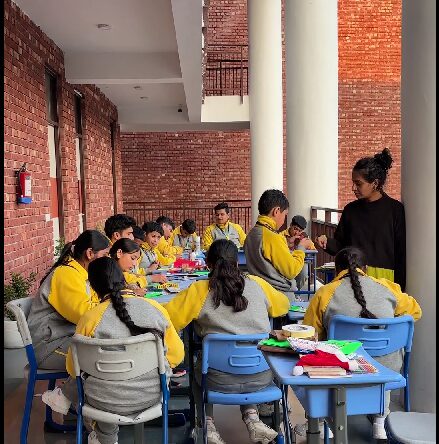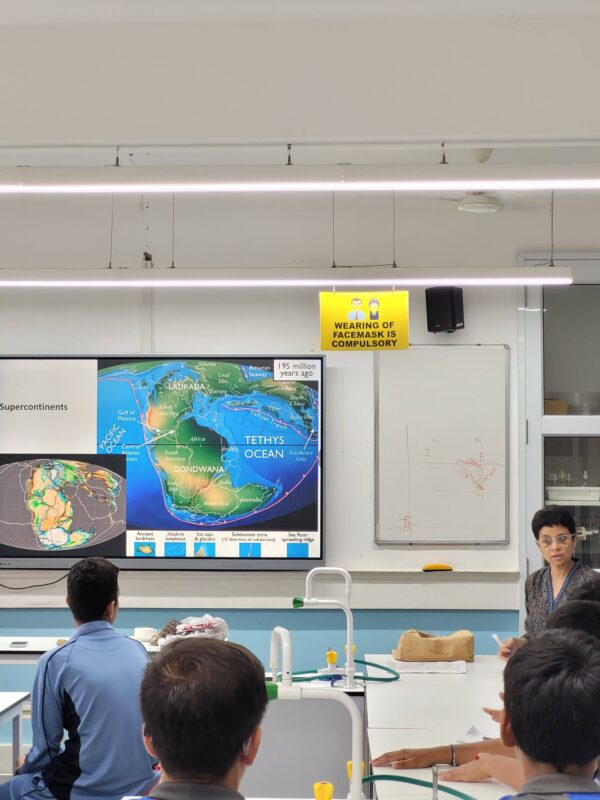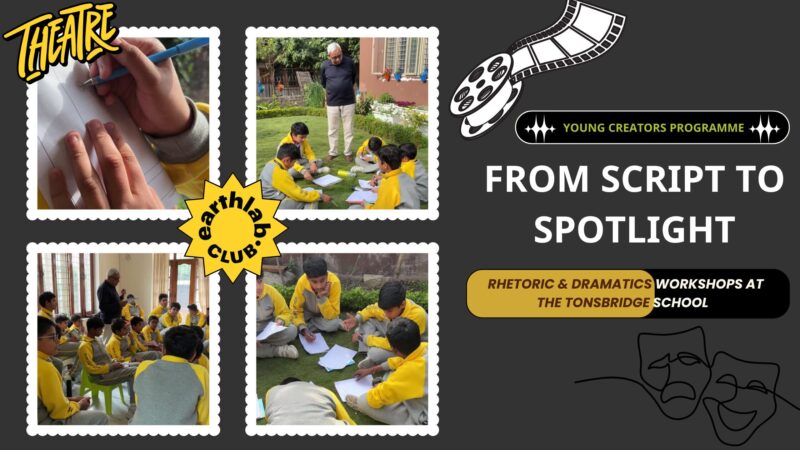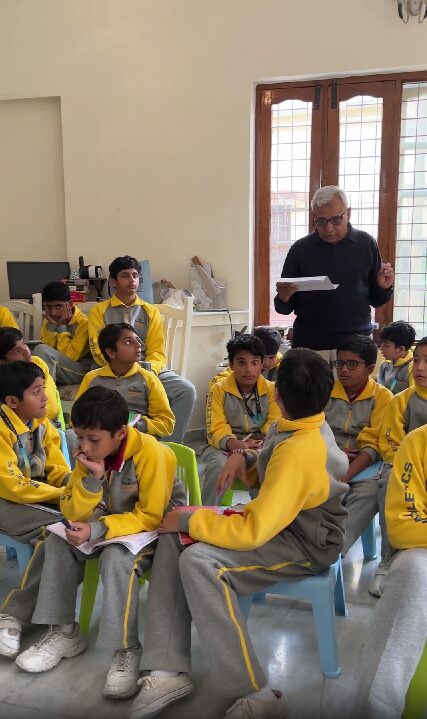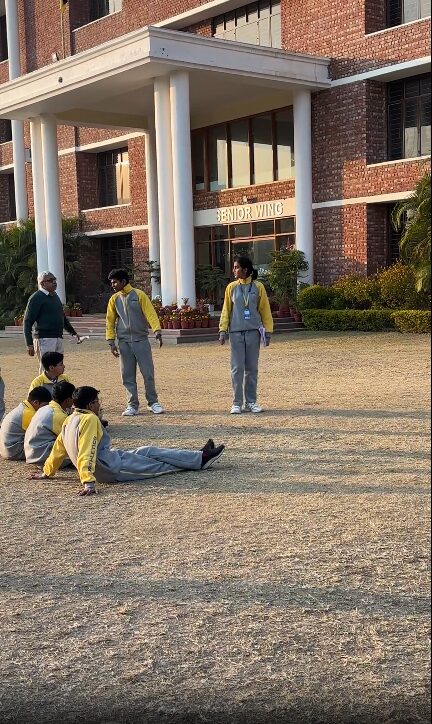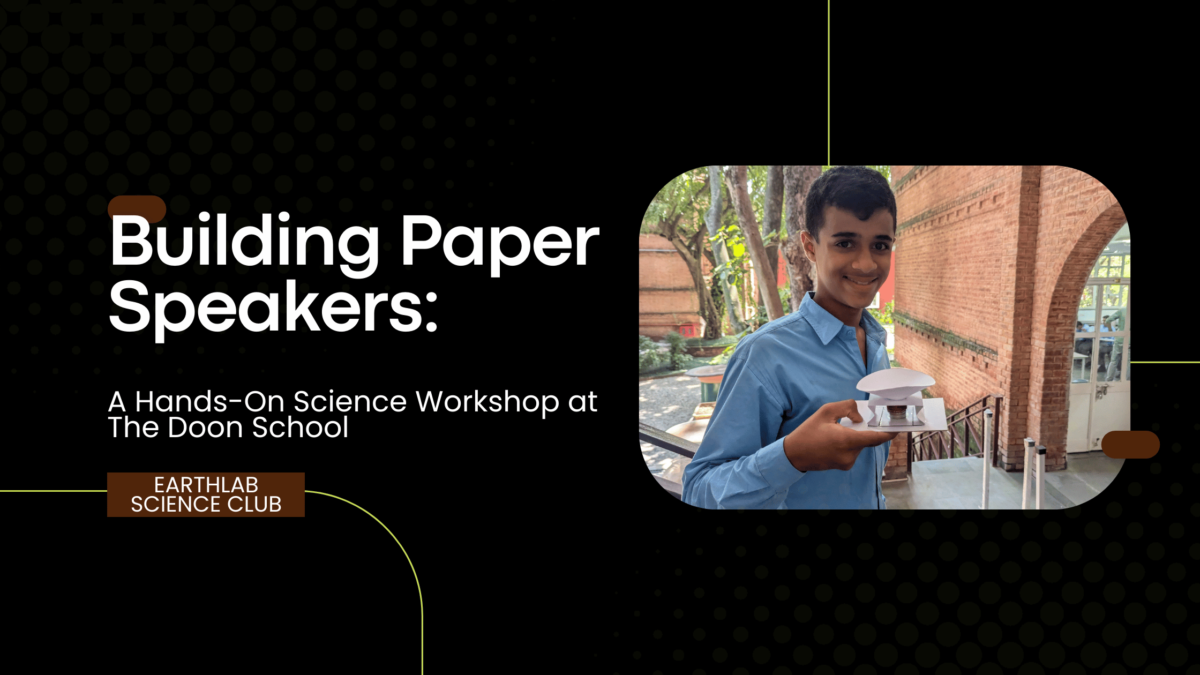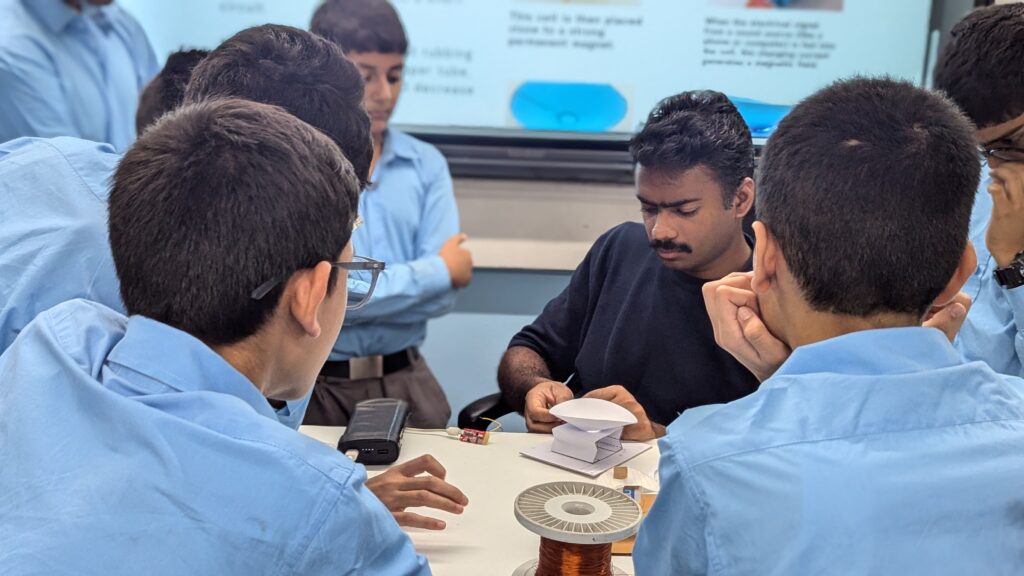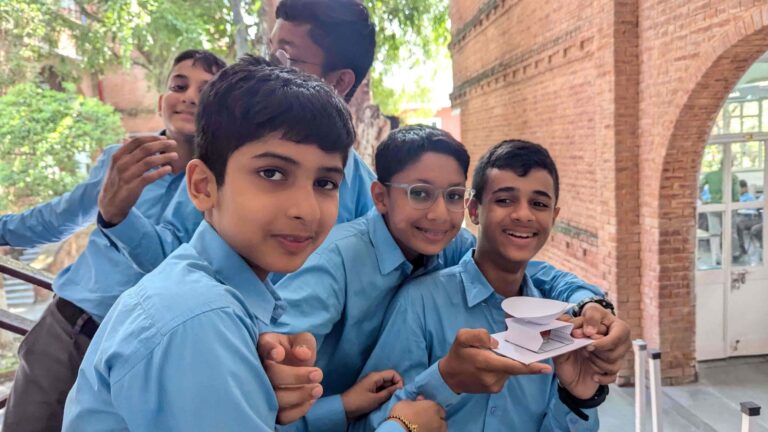In 2024, EarthLab Club launched its very first interactive summer camp, The Young Creators Summer Programme, a future-ready, project-based experience crafted especially for curious minds aged 7–15. The central theme of the Earthlab Club summer programme was Light and Sound, and all activities were curated to help children explore the fascinating art and science behind these elements through immersive, hands-on workshops. Every session was guided by industry experts and creative mentors, ensuring that each child was actively engaged in making, experimenting, and creating, rather than just passively observing. Earthlab Club summer programme’s aim was to bring out the creator in every child making creation, the heart and soul of the programme. They built, recorded, designed, wrote, and explored under the guidance of expert mentors across music, media, literature, science, and design. Whether it was crafting paper speakers, recording their own podcasts, creating cyanotype prints, or building pinhole cameras, every activity was rooted in experimentation and imagination. The Earthlab Club summer programme gave young minds a space to explore their ideas with confidence, where thinking differently is encouraged and celebrated. The children didn’t just learn, they made!

THE MEDIA CLUB
The Media Club workshops of Earthlab Club summer programme consisted of several aspects, out of which students explored the fundamentals of light and sound through their photography and podcasting workshop.
Photography workshop
Led by Mr. Mrinal Bhakhundi, founder of Atelier Monad and an expert in photographic processes, students explored several aspects of photography, all rooted in the science of light and image-making.
- Cyanotype Printing: Students used light-sensitive chemicals and sunlight to create striking blue-toned prints, learning about exposure and photographic composition.
- Pinhole Camera: Using simple materials, students built functional pinhole cameras to understand the basics of optics and how images form.
- Camera Obscura: Children explored the earliest form of visual projection, witnessing how light bends and reflects to cast real-life images onto a surface.
- Basics of Mobile Photography: Students learned framing, lighting, and editing techniques using their phones, developing the skills to turn everyday moments into powerful visual stories.
Podcasting workshop
Led by Mr. Naved Farooqui, a media and business expert, the students in the workshop deepened their understanding of mass communication and audio storytelling curated on the central theme of sound.
- Podcasting Basics: From scripting to recording and editing, children created their own podcast episodes while learning how sound can inform, entertain, and influence.
- Listen to the podcasts created and recorded by the students. Click here.
THE MUSIC CLUB
The Music Club workshops of Earthlab Club summer programme circled around understanding the science and art of sound through song creation. Guided by seasoned professionals from the band Rivermind, students got hands-on experience in creating their own songs during these workshops in earthlab club summer programme.

Led by Mr. Yash Jha, music producer and performer with over two decades of experience and Mr. Prashant Nawani, the lyricist and vocalist of Rivermind help children get hands-on with creating their own lyrics.
- Songwriting: Children crafted original lyrics and melodies by combining their personal stories with rhythm and rhyme.
- Sound Production: Students explored how beats are layered, tempo adjusted, and software used to mix and master music tracks.
Mr. Sarthak Uniyal, a leading musician who teaches western vocals to children gave students an immersive experience in training their voice.
- Vocal Training: Through vocal exercises and techniques, students strengthened their voice control, pitch accuracy, and stage confidence.
Lastly, led by Mr. Bharat or BakFlash, a key figure in Dehradun’s electro music scene encouraged children to get hands-on with creating their own beats, and becoming a DJ.
- DJing: Children got hands-on with DJ consoles, learning how to blend tracks, beat transitions, and performance-based sound design

THE SCIENCE CLUB
The Science Club workshops in Earthlab Club summer program focused on discovering the physics of light and sound through real-world experiments.
Led by Mr. Clifford Prince, a research scholar from IIRS, the workshop encouraged students to get hands-on as they dived into experiences in light and sound as they learned about Waves.
- Waves & Optics: Children explored how light and sound travel through waves by building simple instruments and experimenting with lenses and mirrors.
THE LITERATURE CLUB
The Literature Club workshops in Earthlab Club summer programme focused on encouraging students to write and tell stories that connect real-life experiences with imagination.

Guided by Mr. M.H. Farooqui, literary scholar and educator introduced children to the fundamentals of hindi and english storytelling.
- Creative Writing: Students developed original stories and poems by understanding character development, plot structure, poetry writing, literary analysis, and critical thinking.

THE DESIGN CLUB
The Design Club workshops in Earthlab Club summer programme focused on learning the craft of visual storytelling.
Guided by Mr. Kenny, participants were introduced to the basics material design, idea generation, publications and were encouraged to create their own bionic masks.
- Mask making: Children designed and constructed bionic masks using craft materials, learning about shapes, symmetry, and visual expression.
THE NATURE CLUB
The Nature Club workshops in Earthlab Club summer programme focused on taking learning outdoors, and learning from the locals.
.

With guidance from Head Naturalist Mr. Ayaz Hakim, students explored natural wonders with exclusive experiences like forests, museums, and wild spaces.
- Trip to FRI: Through a guided exploration of the Forest Research Institute, students observed nature’s patterns and learned about sustainable ecosystems.
- Camping at Rajaji: Children experienced wilderness camping, wildlife tracking, and outdoor survival basics, connecting with nature through real adventure.
The EarthLab Club Summer Programme was curated with the vision to encourage students to create and make learning more hands-on . We provided an activity-oriented learning space where children could play, learn, and experiment under expert guidance. The programme also offered a platform to develop social skills, build lasting friendships, and create a lifetime of memories.
EarthLab Club’s next Summer Programme promises to be even more engaging, creative, and hands-on.


